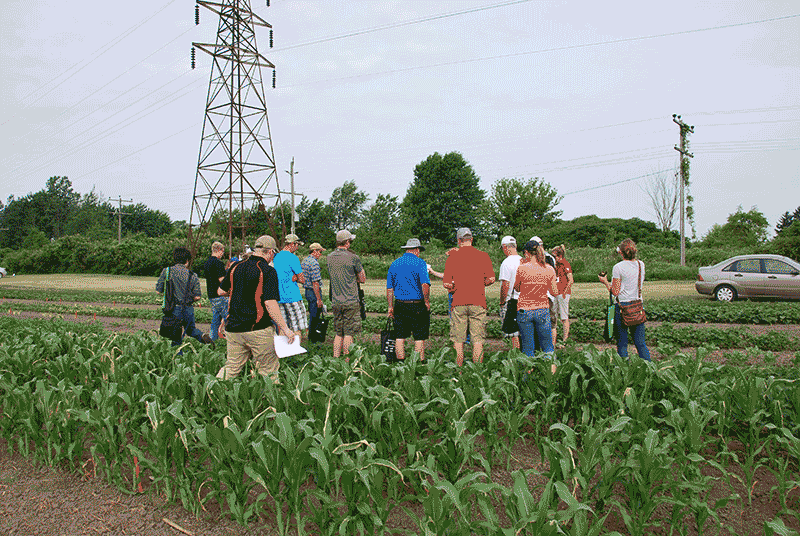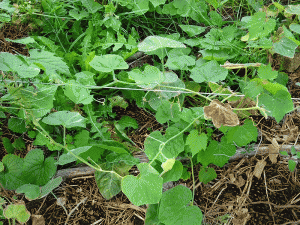Involvement and influence
GRAIN FARMERS OF ONTARIO ADVISORY COMMITTEES

GRAIN FARMERS OF ONTARIO’S Board of Directors sets the direction and focus of the organization. It is then up to staff to ensure that the mission and vision as outlined in the Strategic Plan is fulfilled. To do this, four advisory committees — consisting of directors, delegates, and a staff department manager — meet to review activities, discuss important industry issues, and make recommendations to the Board. Delegates are being encouraged to take a more active role in their organization and apply for a position on one of the advisory committees.
COMMUNICATIONS
Advise the board on general public relations campaigns and collateral, grower publications, advertising policy, media relations, press releases, and website presentation and content.
“Communications is the committee that helps to form the messages we tell about agriculture, and that’s one of the most important things we need to do in this era of social license,” says Mark Huston, director for District 2 (Kent) and chair of the Communications Committee. “Our ability to change public opinion comes down to whether or not we have communicated our story effectively.”
The Communications Committee meets quarterly to review and provide feedback on public outreach initiatives and farmer-member communication activities. One such initiative was the Chris Soules project which brought the reality-tv star to Ontario to help spread the Good in Every Grain message.
“We received overwhelming support from the Committee to take the risk to do the Chris Soules project,” says Meghan Burke, manager of communications for Grain Farmers of Ontario. “We anticipated some concerns as this was ‘out-of-the-box’ and utilized a celebrity that wasn’t a household name for our committee members; however, our committee immediately understood the strategy and recognized the unique opportunity and how it would achieve our goals.”
Committee members have an interest in communications strategy, public outreach, and social media. ”We look for delegates who have the ability to bring grassroots member perspectives on both internal and external communications,” says Burke.
On occasion, committee members may also be contacted for assistance with communications initiatives such as video shoots, event support, and media outreach.
“If you are interested in helping to form the story of agriculture, this is the committee that best does that,” says Huston. “I think it’s good to get different people involved in the organization so they can see what their funds are doing for them. Communication is a rather substantial part of the budget, and it’s an important one. I would encourage people to consider it and put their names forward.”
GOVERNMENT RELATIONS
To examine and discuss government policies, including regulatory issues, and policies from with all levels of government, general farm organizations, and other commodity groups. The Committee shall also assess and develop new or make changes to existing government programs and policies for consideration by the Board.

“The Government Relations Committee is a focus group that has to look at the bigger picture within the government relations portfolio of where we need to strategize our resources and how to approach important issues,” says Markus Haerle, director for District 14 (Prescott, Russell, Stormont, Dundas, Glengarry) and chair of the Government Relations Committee.
The Government Relations Committee meets four times a year and members participate in Delegate’s Policy Day.
“Committee members have a passion for policy development,” says Debra Conlon, manager of government relations for Grain Farmers of Ontario. “They like to evaluate an issue and dissect the impact of a specific direction after considering different scenarios and their potential outcomes.”
Over the past year, the Government Relations Committee has focused on issues such as addressing Great Lakes water quality concerns through reducing phosphorous runoff, the impact of cap and trade on the cost of farming, the need for an updated Business Risk Management (BRM) program that meets the needs of the grains and oilseeds industry, and how the neonicotinoid regulations can be made workable for farmers. It’s important for delegates who are committee members to provide their feedback and provide outside input from the grassroots level to help shape the direction of the organization.
“Delegates’ voices are heard by the Board through the Committees, so they shouldn’t be worried that it’s a waste of time to participate,” says Haerle. ”Being a committee member is also a building block for delegates that want to move up and get more involved in the organization and be a future candidate for a director or district chair. They are involved in decision making for the future of the grains and oilseed industry.”
MARKET DEVELOPMENT
Advise the Board on strategic planning and initiatives for marketing and utilization of grains and oilseeds for profitable growth.

“Market Development is a great opportunity to help expand the use of Ontario grains,” says Scott Persall, director for District 5 (Elgin, Norfolk) and chair of the Market Development Committee. “It’s important for the Board of Directors to gain input from delegates across the province so that we have an understanding of what the membership sees as priorities to build a strong market for Ontario grains.”
In addition to attending three to four meetings per year, delegates on the Market Development Committee are asked to liaise with industry and other organizations on market issues and help increase consumer awareness, consumption, and knowledge of Ontario grains and oilseeds. Committee members also review proposals submitted from companies and recommend projects to the Board for funding through the Grains Innovation Fund.
“We are looking for delegates who are innovative thinkers and interested in marketing,” says Nicole Mackellar, manager of market development for Grain Farmers of Ontario. “They don’t need to have a marketing background, but they do need to have an interest in new niche marketing opportunities as well as a good understanding of world markets, including a broad based knowledge of what’s happening with our key competitors, so that we can have fruitful discussions about what we can do to better position Ontario grains and oilseeds.”
Recent highlights include working with Griffiths Laboratory to increase their use of Ontario wheat in their bread crumb coatings, supporting the Griffin race team at the University of Guelph which utilizes bio-based products in the building of their race car, and the opening of the Grains Analytical Testing Laboratory in partnership with SGS Canada.
“Participating in the Market Development Committee is a great opportunity to meet other delegates of like-mind within the Ontario grain industry; and, through our summer meeting tours, explore what our partners are doing,” says Persall. “There are a lot of exciting projects we are working on.”
RESEARCH AND INNOVATION
Advise the Board on research priorities and the level of resources appropriate for each issue and opportunity. The Committee shall also advise on policy related to new technology.

“Research and Innovation is one area Grain Farmers of Ontario has a significant investment,” says Henry Van Ankum, director of District 10 (Grey, Bruce, Wellington) and chair of the Research and Innovation Committee. “We spend a good 20 per cent of the organization’s budget on research.”
The Research and Innovation Committee is involved in shaping the priorities for research projects every year and reviews all of the research proposals that are submitted in order to make a recommendation to the Board about which projects to fund. The current focus is on reducing phosphorous movement, how to incorporate a cover crop system onto your farm, and improved crop quality and utilization.
“We are trying to target research that gives us the right information to help equip us with answers for some of the tough questions being asked about hot button issues that we are in the middle of — such as nutrient management as it relates to Great Lakes water quality,” says Van Ankum.
In addition to the time spent reviewing proposals, Research and Innovation Committee members attend four or five meetings throughout the year. One of these meetings involves a tour of a research facility where funded work is ongoing. This provides an appreciation for how funded research plays a role in the industry as a whole.
“Delegates who are interested in the Research and Innovation Committee don’t need to provide a technical perspective,” says Josh Cowan, manager of research and innovation for Grain Farmers of Ontario; “they need to bring a practical on-farm perspective to the table and be able to bring forward the issues that are important to their region. We’re looking for delegates who want to improve the status quo.”
“If you have a real interest in trying to get answers to production questions, if you really want to be involved at Grain Farmers of Ontario in an area that has significant impact on behalf of the growers in the province, then you should consider being involved in this committee,” adds Van Ankum. “If you’re involved in your own operation in trying new things and solving problems and always improving your practices, I think you will enjoy it. Common sense and a practical approach to evaluating research is all you need, you don’t need to be a scientist to be involved in the committee.”
GET INVOLVED
All farmer-members are encouraged to attend the January District Meetings and put forward their names if interested in becoming a delegate for their district. Information about the date and location of each January District Meeting can be found in the GFO Newsletter section of this magazine (page 20). Farmer-members can direct any questions about becoming a delegate or a committee member to Steve McCabe at smccabe@gfo.ca or 226-979-5581.
Delegates interested in participating on an advisory committee can learn more about the application process at their January District Meeting.
“I encourage all delegates to get involved and find out more about the committees,” says Steve McCabe, manager of member relations. “The delegates cannot only help lay out a path for Grain Farmers of Ontario but chart their own future as well.” •








